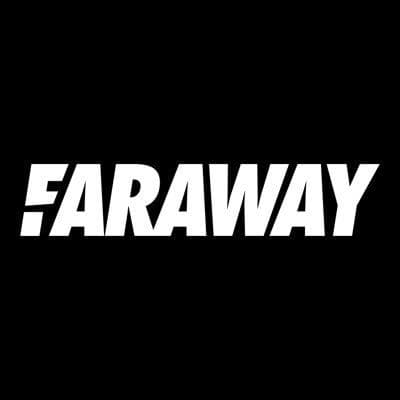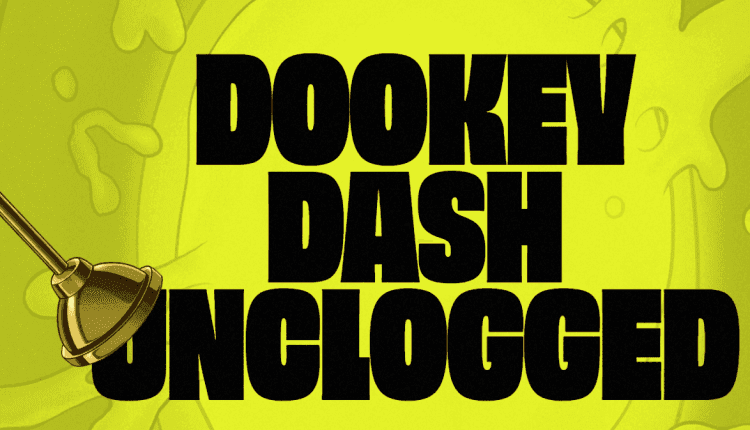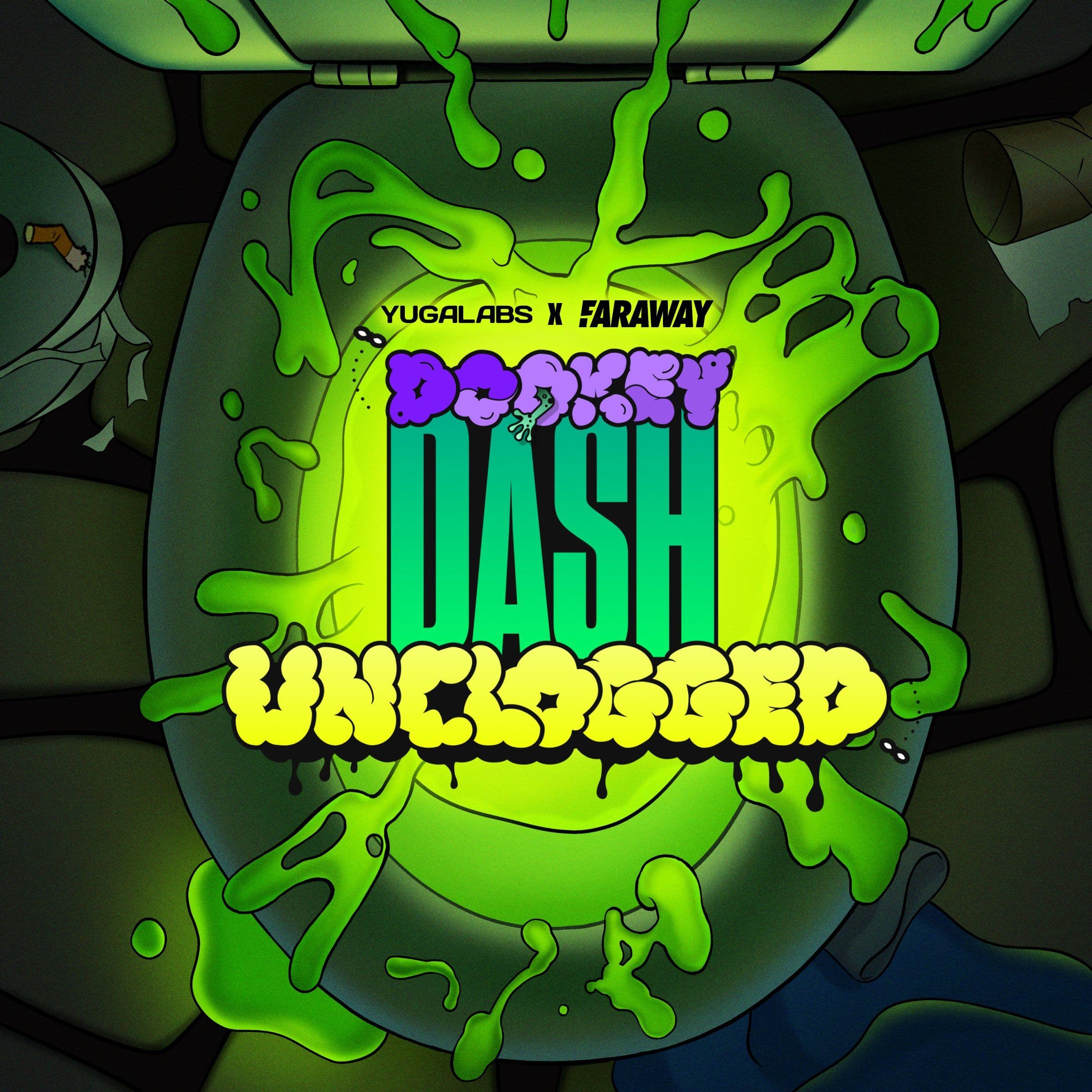In a move signaling a deeper collaboration between two strategic partners, Faraway has revealed its acquisition of two popular web3 gaming IPs (HV-MTL and Legends of the Mara) from Yuga Labs. This acquisition comes as Faraway aims to rejuvenate and elevate Yuga's struggling intellectual properties (IPs).
In this article, we will cover everything you need to know about the acquisition, the new points system, community rewards, and more. We will also touch on recent developments to the Faraway ecosystem - including the Faraway Shop and how you can start creating your own in-game assets and monetizable content.
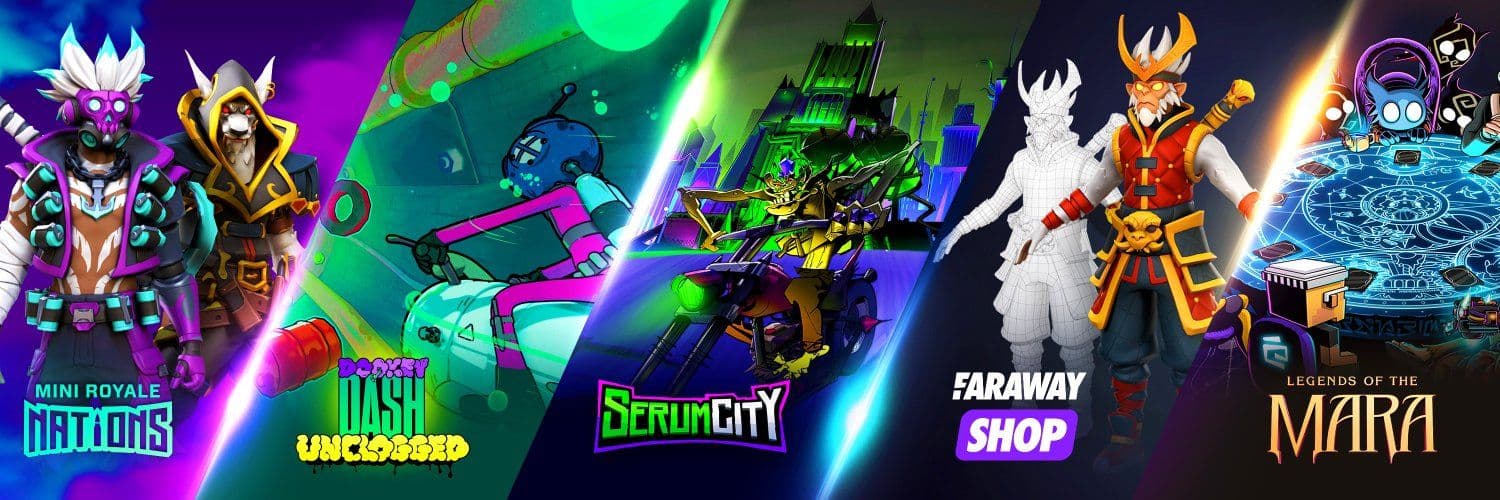
Details of Acquisition
As part of the acquisition, Spencer Tucker, Yuga's Chief Gaming Officer, will transition to Faraway as its new Chief Product Officer, indicating a strengthening of ties between the two companies. Spencer will be joining the well-known and highly respected Alex Paley, co-founder of Faraway.
Before Faraway, Alex had already carved his path in the traditional web2 gaming industry, working with renowned studios like Glu and Scopely. To coincide with the acquisition announcement, Faraway is rolling out an innovative points system for HV-MTL and Legends of the Mara NFTs, effective today, April 18th. This new system is designed not only to reward the community but also to inject fresh utility into these NFT collections.
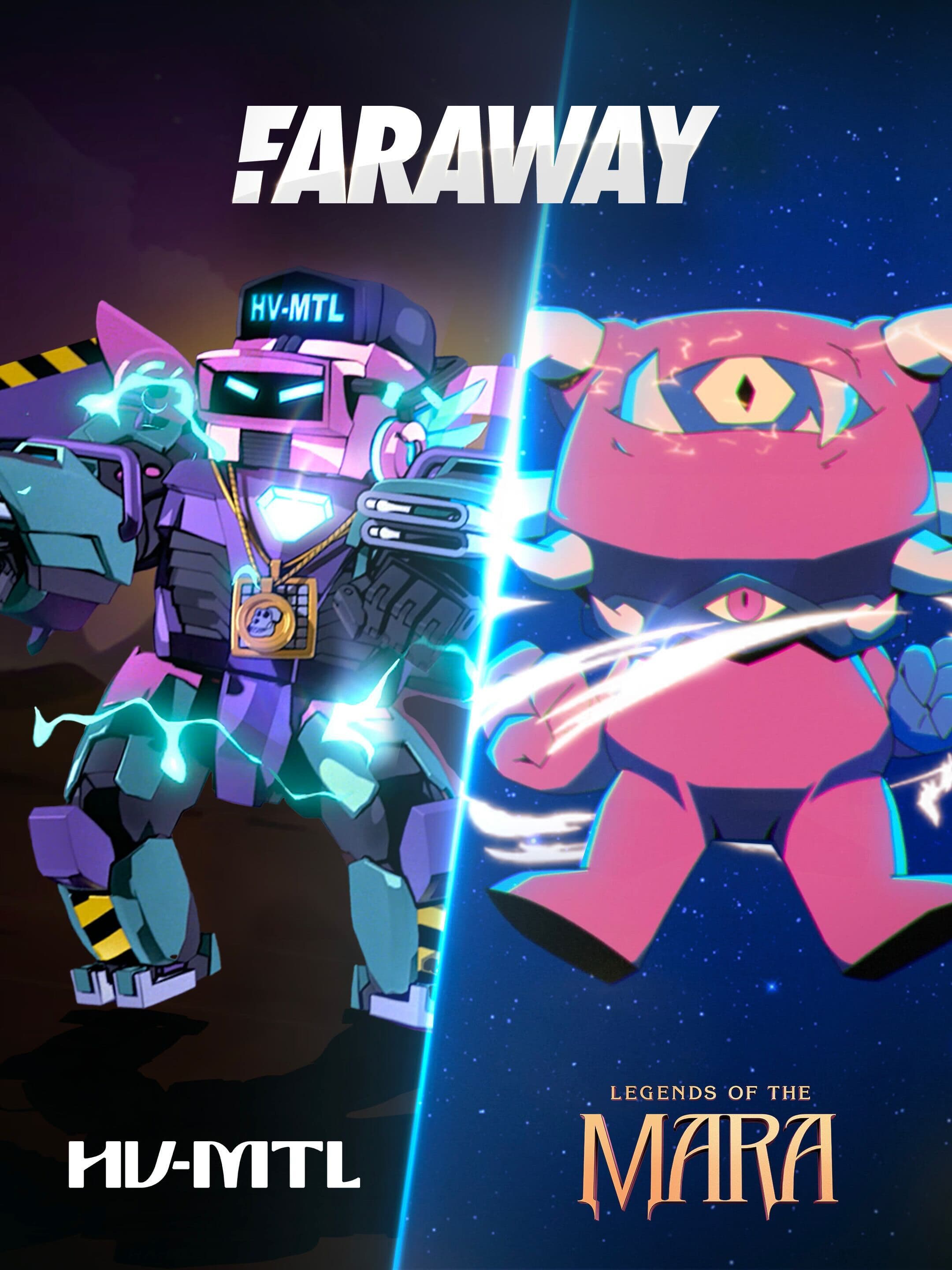
HV-MTL Points System
The HV-MTL points system introduces a revamped metadata field called HV-MTL Points. These points are intricately tied to an HV's class, companion, power score, evolution to EVO-2s, Amp consumption, and Rarity type, promising a more comprehensive and rewarding experience for players.
Legends of the Mara Points System
Similarly, the Legends of the Mara points system will impact Kodas and Kodamara NFTs. Despite the Otherside Koda collection remaining under Yuga's ownership, Kodas will still benefit from the new points system, which takes into account asset type and ability type. Meanwhile, Kodamaras will earn points based on their role, originating Mara tier, catalyst type, and sediment used in fusion.
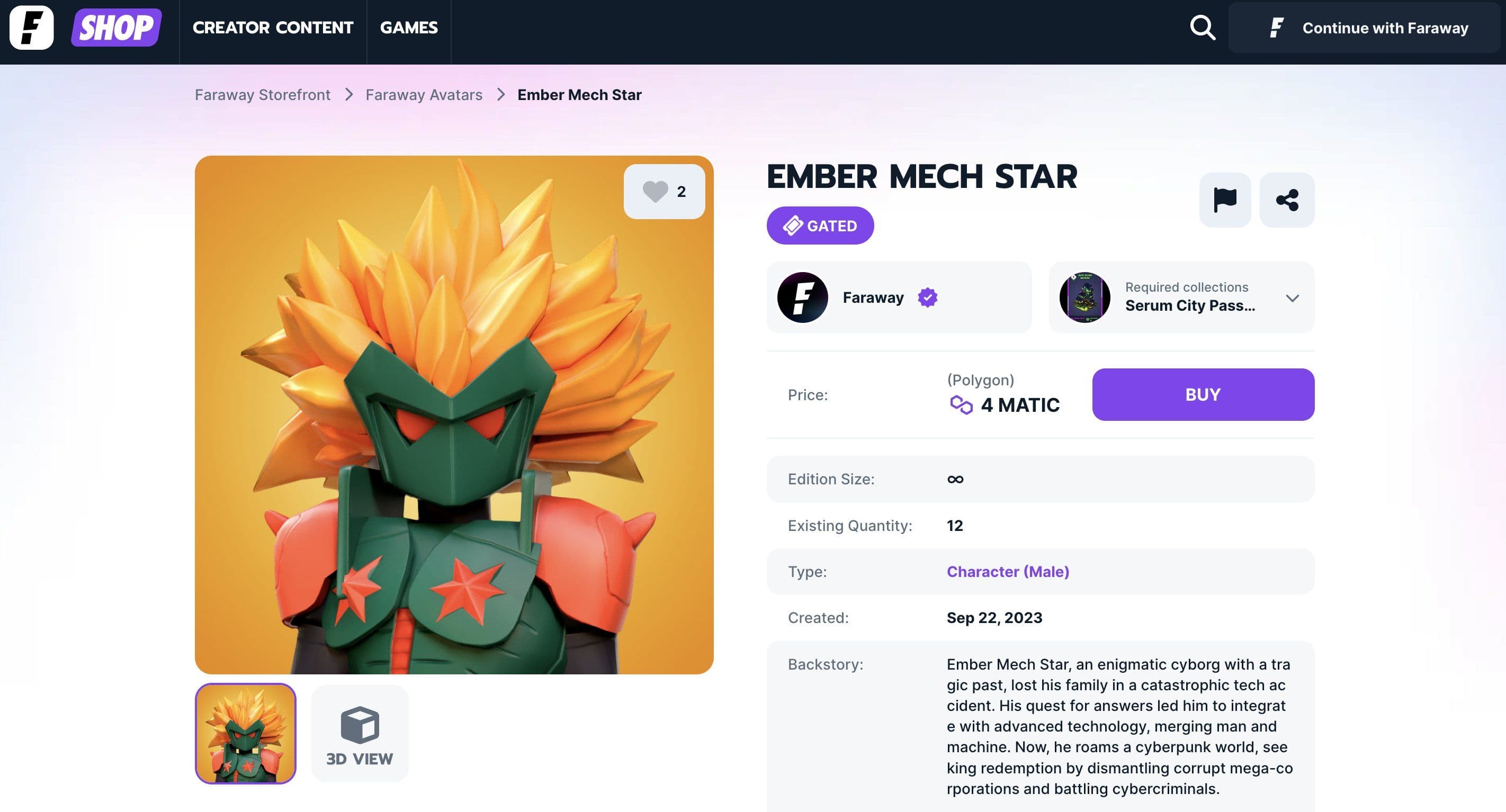
Prioritizing Player Rewards
In an official statement, Faraway emphasized its commitment to creating an ecosystem of interoperable games and economies that prioritize player rewards. The company expressed optimism about the growth potential of Yuga's gaming IP with its resources, citing a year-long exploration of Yuga's gaming IP as the foundation for this acquisition.
While the acquisition marks Yuga's strategic refocus on its core NFTs and community, it notably excludes mention of the collaboration between the two companies on Dookey Dash Unclogged, the sequel to Yuga's Dookey Dash released in 2023. However, recent news has surfaced regarding Faraway's close collaboration with Yuga on the upcoming title, Dookey Dash Unclogged, with plans to integrate Faraway's UG platform and the Faraway Shop to enhance the experience for players.
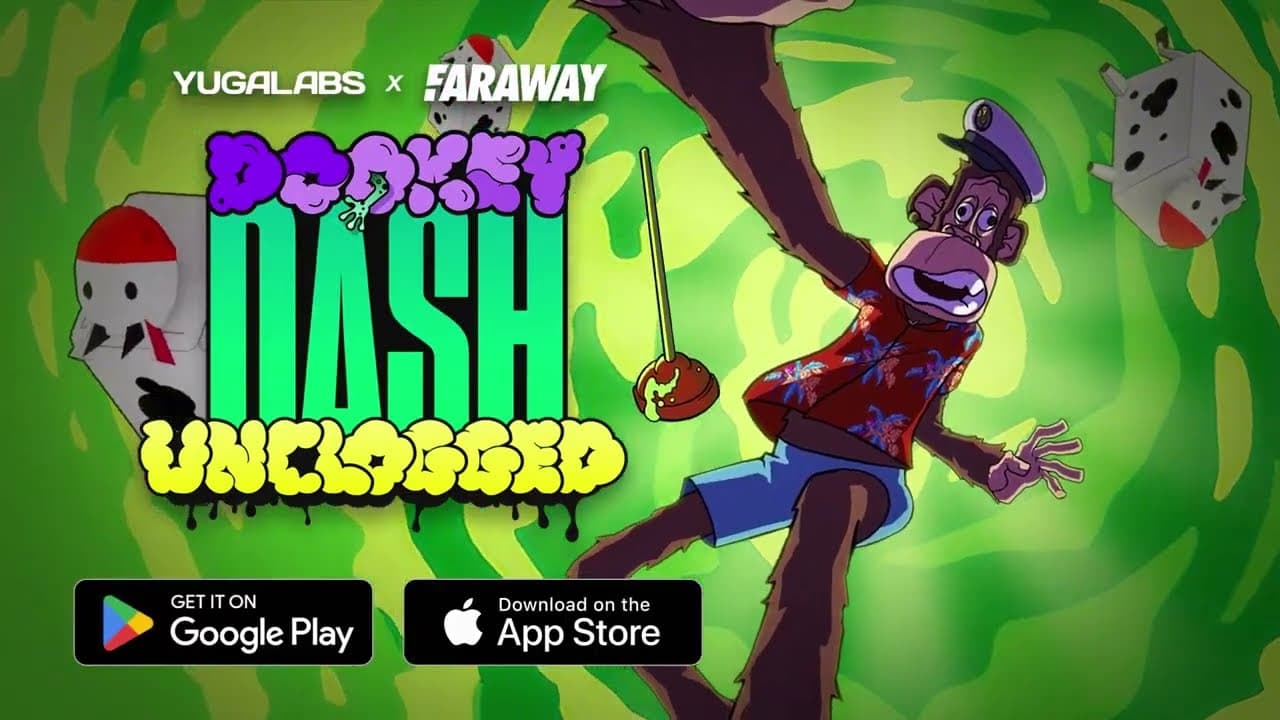
With backing from prominent investors like Lightspeed, Sequoia, and a16z, Faraway has been making waves not only with HV-MTL and Legends of the Mara but also with the launch of browser-based FPS Mini Royale: Nations and Mutant-themed city-builder Serum City, alongside its creator platform, the Faraway Shop.
What is The Faraway Shop?
The Faraway Shop is an expansive gaming marketplace facilitating minting, buying, and selling of interoperable assets across the Faraway game ecosystem. This platform offers a wide selection of purchasable items, including avatars, weapon skins, game access passes, and various in-game essentials.
Catering to players of popular titles like Mini Royale: Nations, Serum City, Dookey Dash: Unclogged, Legends of the Mara, and more, the Faraway Shop serves as a centralized destination for enhancing gaming experiences and connecting with fellow enthusiasts.

Interoperable Assets
The Faraway Shop is a gaming marketplace for minting, buying, and selling interoperable assets across the Faraway game ecosystem. Purchasable items include avatars, weapon skins, game access passes, and other in-game items used across games like Mini Royale: Nations, Serum City, Dookey Dash: Unclogged, Legends of the Mara, and more coming soon.
Like traditional web3 marketplaces, the Faraway Shop showcases all on-chain metadata related to a listed or mintable item. However, unlike other marketplaces, the Faraway Shop has been carefully designed to provide a holistic view of items that have utility across multiple games or virtual worlds.
An interoperable item may have different data and utility depending on the game where it is used, and the Faraway Shop is designed to make sure this cross-game utility is prominently communicated. Faraway believes in a world of more open game economies where digital assets can and should have utility across many experiences.

What is Creator Content?
Certain Faraway games, like Mini Royale: Nations, support UGC (user-generated content). For example, a community member can create a 3D character model (meeting Faraway’s technical requirements) which can be purchased and used by other players in-game.
A Creator is someone who has made a UGC game item and uploaded it to the Faraway Shop - this content is considered Creator Content and is featured in the Creator Content tab of the Faraway Shop. Creators can run their own Storefronts where their items are purchasable, and other Sellers can also aggregate and list items made by these Creators.
Role of Blockchain?
All items sold on the Faraway Shop have been minted to a blockchain like Ethereum, Solana, or Polygon. Once purchased, these items live in the buyer’s web3 wallet (e.g. Metamask, Phantom) and are integrated and visible in games once their wallet is connected to the application. Buyers pay for items using cryptocurrencies corresponding to the blockchain that the item was minted to.
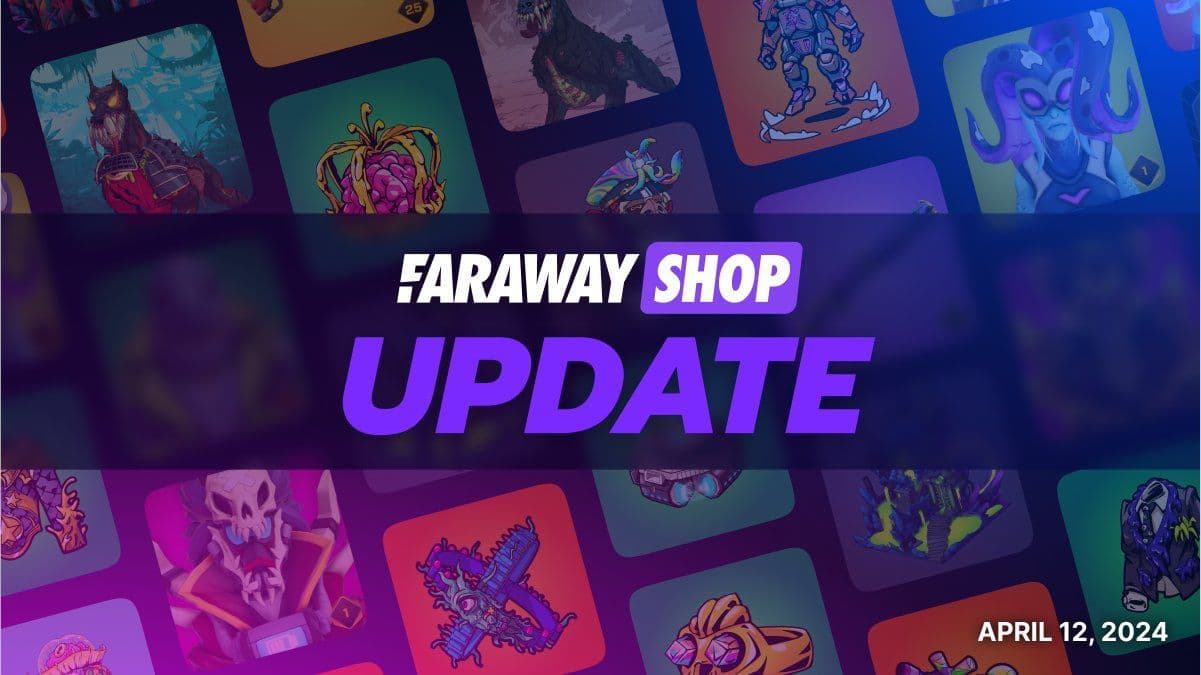
Royalties on secondary sales?
If you’re not familiar, a royalty is a designated percentage of revenue from an item sale that is reserved for the item Creator. Royalties apply to every secondary marketplace transaction of an item, regardless of the sales price.
In the Faraway Shop, royalties are enforced, meaning that the Creators receive a piece of the sales price every time one of their items is resold in the Faraway Shop. This creator royalty amount is taken from the amount that the Seller receives when their item sells. The Faraway Shop also takes a 2.5% marketplace from the sales price of each transaction, paid by the Buyer.
Not all marketplaces enforce royalties. Instead, some marketplaces allow the purchaser to decide if they want the Creator to receive their royalty. The Faraway team says they "believe that in order for the new era of digital open economies to flourish, Creators must be incentivized to create and sell excellent items and that royalties provide a means of sustainability for these Creators."

Limitations?
Anyone can upload their creations to the Faraway Shop, but items will only upload successfully if they meet the technical requirements for usage in Faraway's products. There is also a content moderation process where all items are reviewed and approved or rejected based on content/theming.
Final Thoughts
In the realm of web3 gaming, the Faraway Shop's comprehensive marketplace becomes even more pivotal. With its focus on interoperable assets and seamless integration across diverse gaming environments, this platform aligns perfectly with the principles of decentralized gaming.
By providing a streamlined avenue for minting, purchasing, and trading assets across multiple titles, the Faraway Shop not only enhances individual gaming experiences but also contributes to the broader evolution of the web3 gaming ecosystem.
As blockchain technology continues to revolutionize the gaming industry, platforms like the Faraway Shop are at the forefront, shaping the future of gaming with innovation and inclusivity. Learn more about Faraway’s technical requirements and community standards policy.
This article was inspired by an original blog post, you can read the original write-up here for more information.
